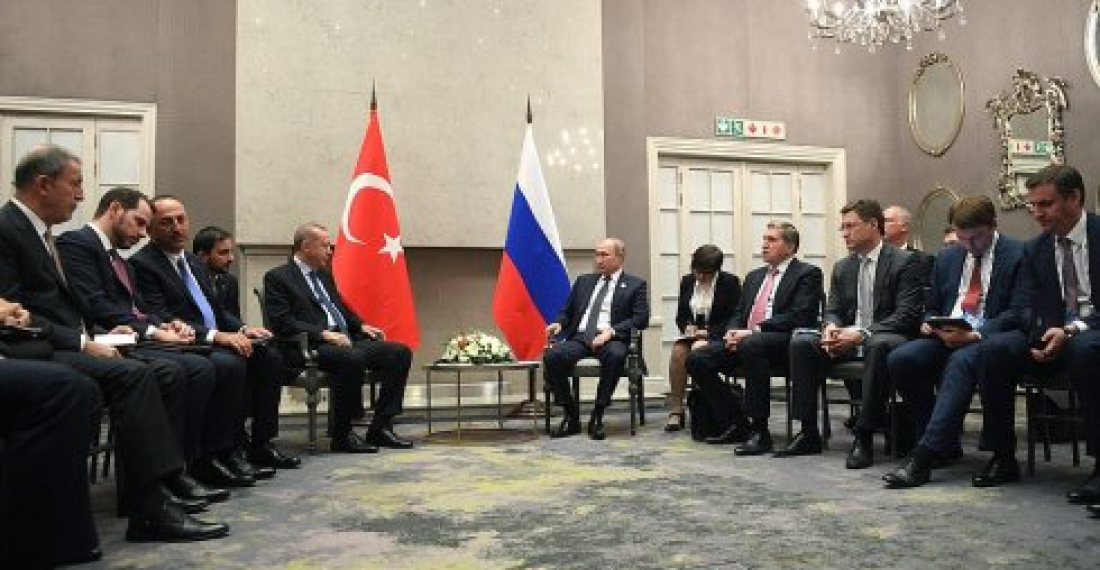Turkish president, Recip Tayip Erdogan and Russian president Vladimir Putin met in Johannesburg on Thursday on the margins of the summit of the BRICS nations.
Speaking to journalists before the start of the meeting, Putin congratulated Erdogan on his recent "domestic political victories". Highlighting the good state of relations Putin said that last year trade between the two countries increased by 40.5 percent and now stands at $22 billion. "In the first five months of this year it increased by another 46 percent. We are carrying out all of our major projects according to plan", added the Russian president.
On his part President Erdogan said relations between the two countries were developing very quickly across the board in the military, trade, cultural and tourism areas. "Our countries have set targets for trade, and I think we will reach them because we wholeheartedly believe in it. Our tourism sector is doing well. I think that this year about 6 million Russian tourists will visit our country", said the Turkish president.
"On the other hand we are seeing that our cooperation is causing envy from others" Erdogan told the Russian president.
After this public exchange the two presidents held a 75 minute meeting in which issues related to Syria, Iran and bilateral relations were discussed.
source: commonspace.eu with agencies
photo: The meeting between the presidents of Russia and Turkey and their delegations in Johannesburg on 26 July 2018 (picture courtesy of the press service of the president of Russia






